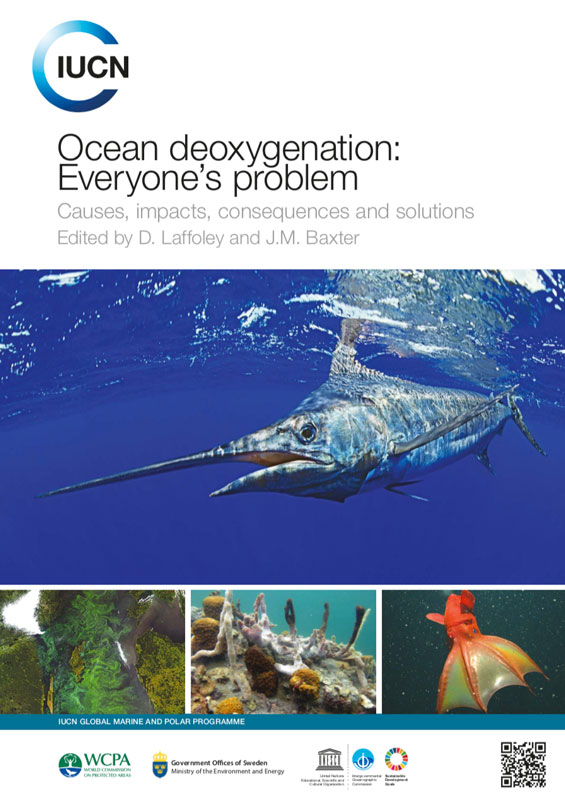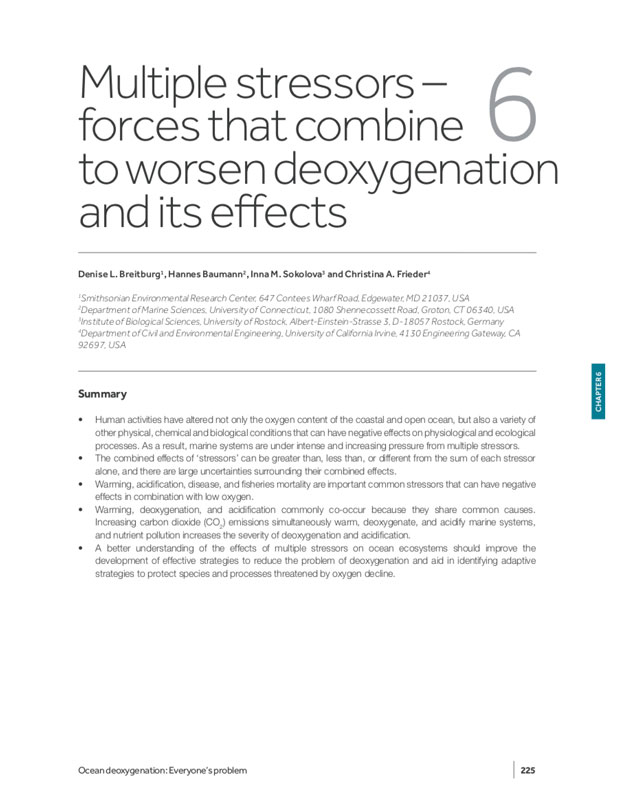From the executive summary:
“The equilibrium state of the ocean-atmosphere system has been perturbed these last few decades with the ocean becoming a source of oxygen for the atmosphere even though its oxygen inventory is only ~0.6% of that of the atmosphere. Different analyses conclude that the global ocean oxygen content has decreased by 1-2% since the middle of the 20th century. Global warming is expected to have contributed to this decrease, directly because the solubility of oxygen in warmer waters decreases, and indirectly through changes in the physical and biogeochemical dynamics.”
From the summary of chapter 6:
- Human activities have altered not only the oxygen content of the coastal and open ocean, but also a variety of other physical, chemical and biological conditions that can have negative effects on physiological and ecological processes. As a result, marine systems are under intense and increasing pressure from multiple stressors.
- The combined effects of ‘stressors’ can be greater than, less than, or different from the sum of each stressor alone, and there are large uncertainties surrounding their combined effects.
- Warming, acidification, disease, and fisheries mortality are important common stressors that can have negative effects in combination with low oxygen.
- Warming, deoxygenation, and acidification commonly co-occur because they share common causes. Increasing carbon dioxide (CO2) emissions simultaneously warm, deoxygenate, and acidify marine systems, and nutrient pollution increases the severity of deoxygenation and acidification.
- A better understanding of the effects of multiple stressors on ocean ecosystems should improve the development of effective strategies to reduce the problem of deoxygenation and aid in identifying adaptive strategies to protect species and processes threatened by oxygen decline.
Access the full report from IUCN.org
- Breitburg, D.L., Baumann, H., Sokolova, I.M., and Frieder, C.A. (2019)
Chapter 6. Multiple stressors – forces that combine to worsen deoxygenation and its effects.
In: Ocean deoxygenation: everyone’s problem. Causes, impacts, consequences and solutions
International Union for Conservation of Nature (IUCN). Report xxii, 562p.

